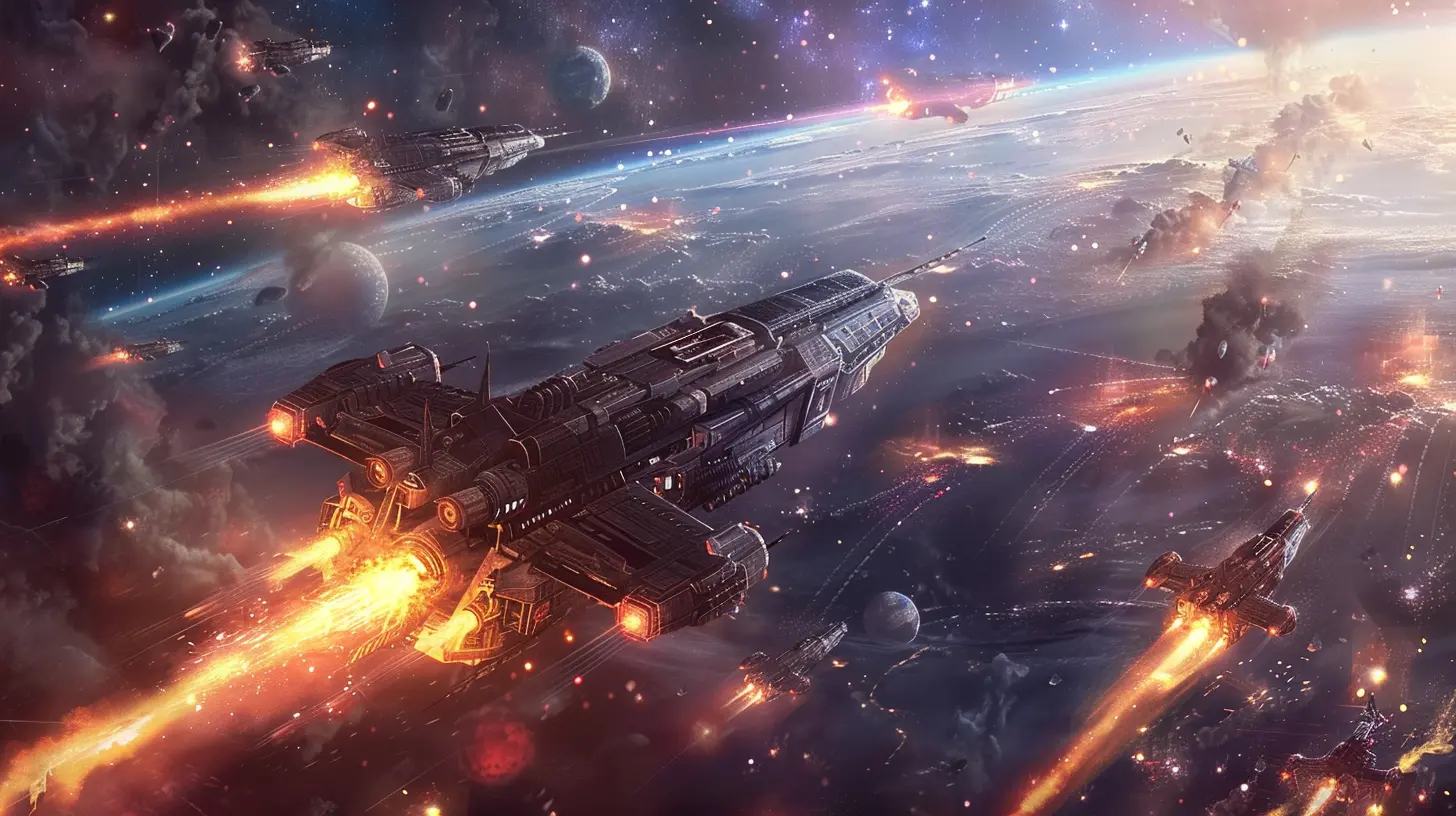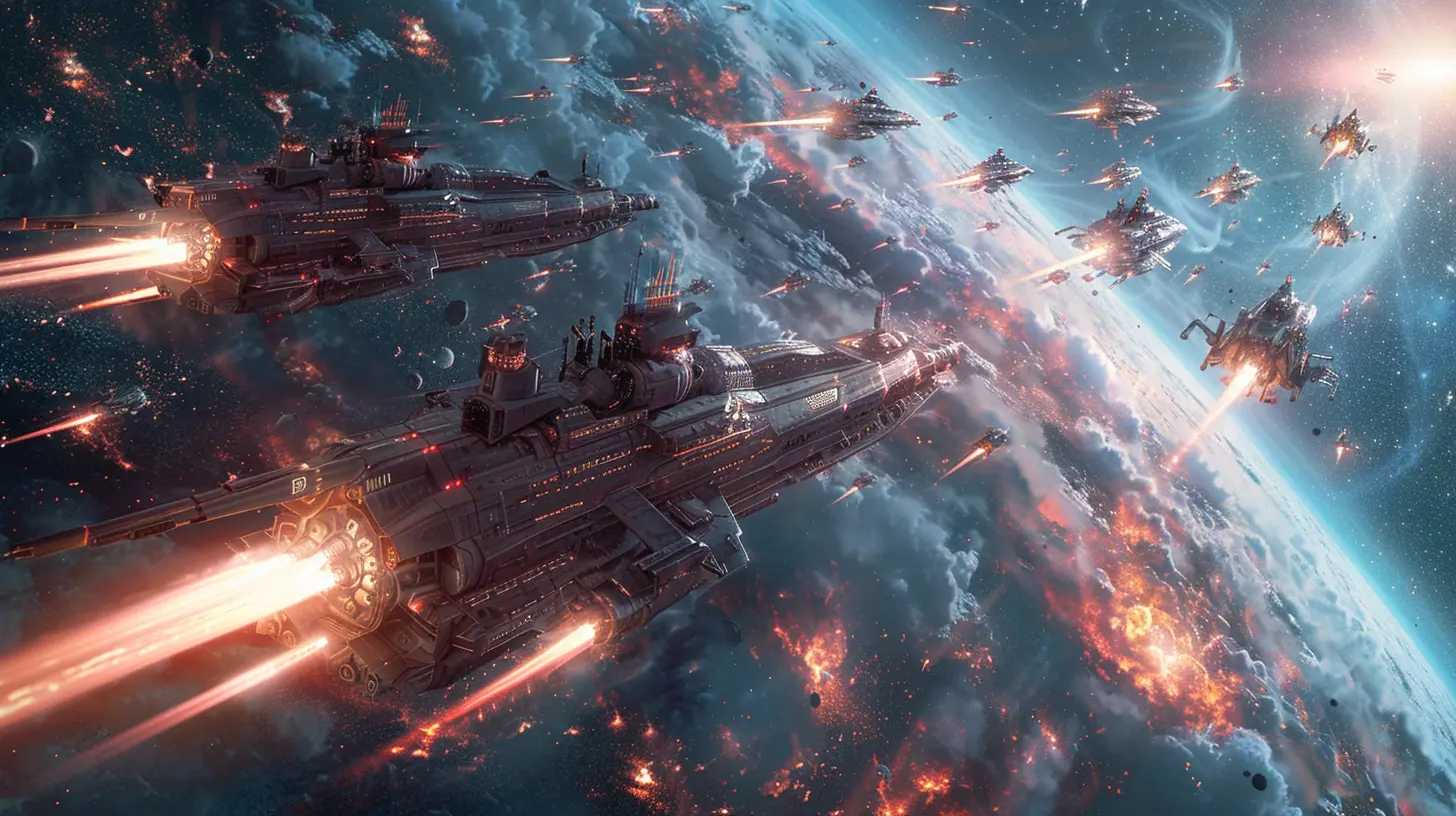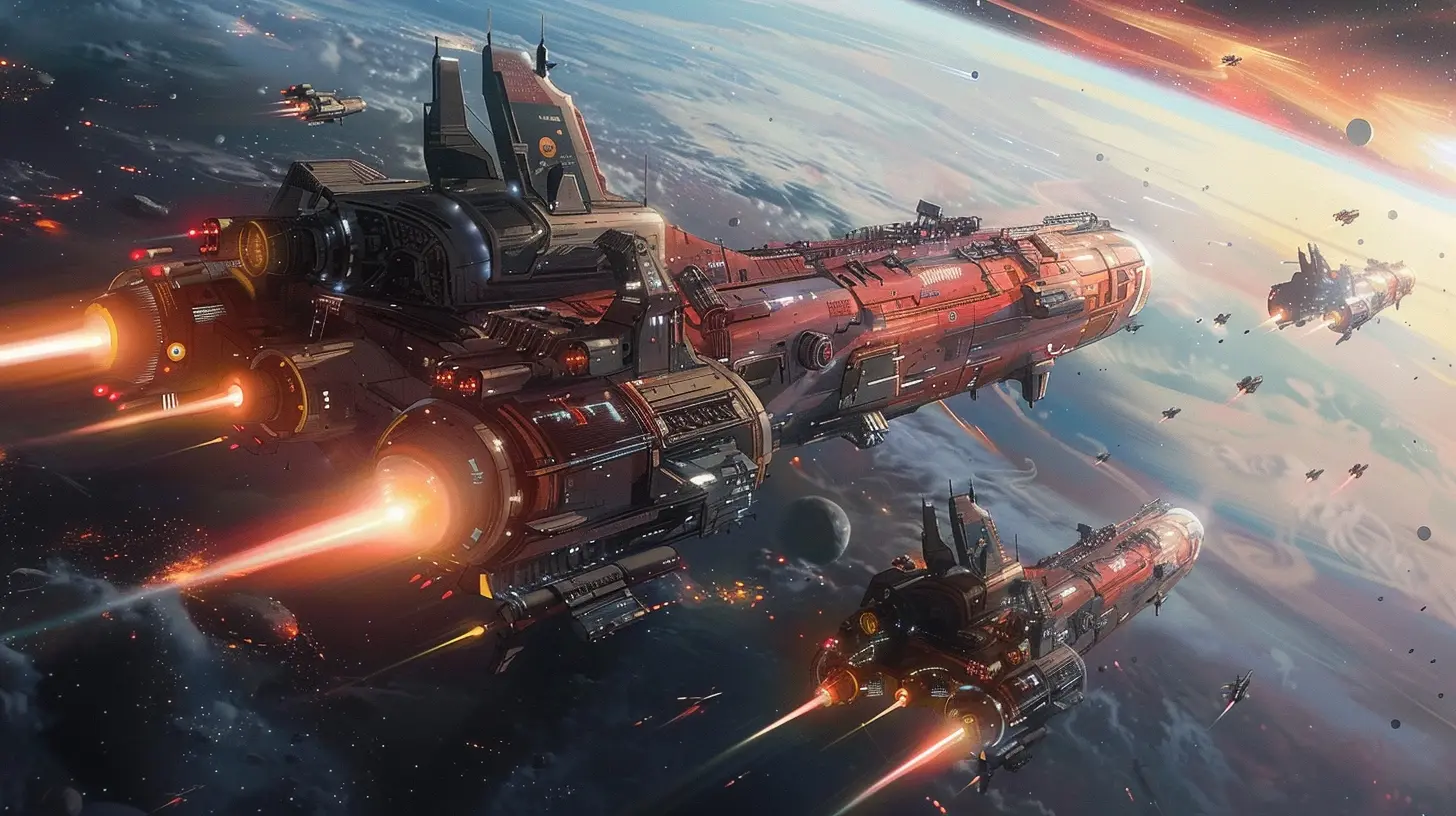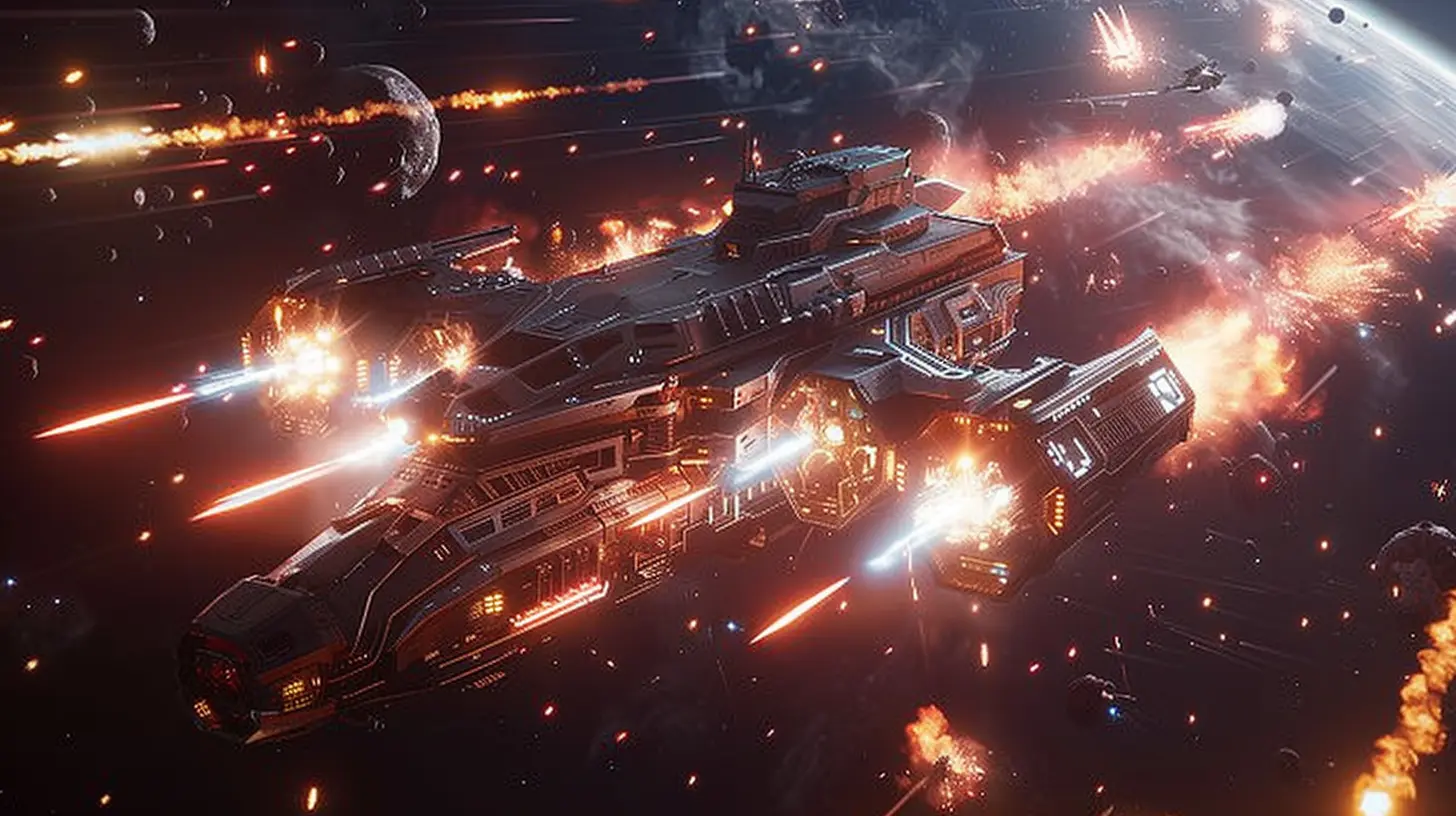The Rise of Space-Themed RTS Games and What Makes Them Unique
10 November 2025
If you're a gamer, chances are you've noticed that space-themed real-time strategy (RTS) games are having something of a moment right now. These games, with their sprawling galaxies, interstellar combat, and resource management, have carved out a special niche in the gaming world. But why are they so popular? What sets them apart from other types of RTS games? Let’s dive into this cosmic phenomenon and figure out what makes these games more exciting than a supernova.
The Allure of Space: Why Gamers Love Cosmic Settings
Space has always held a special place in human imagination. There's something about the vast, uncharted universe that gets our brains buzzing. Space-themed RTS games take this sense of wonder and wrap it in a layer of strategy, exploration, and conquest. It’s like being a starship captain, an intergalactic diplomat, and a war general all rolled into one.But what makes space uniquely suited for RTS games? Well, think about it: the universe is massive. We're talking infinite possibilities, a blank canvas for game developers to paint on. Want a galaxy with hundreds of solar systems and unique alien races? Done. Want physics-defying space battles involving lasers, ships the size of cities, and black holes? Easy. The possibilities are as endless as the universe itself, and gamers can’t seem to get enough of it. 
A Quick Look Back: How Space-Themed RTS Games Took Off
Real-time strategy games have been around for decades, but space-themed RTS games really started hitting their stride in the late 1990s and early 2000s. One of the trailblazers was Homeworld (1999), a game that took the traditional RTS formula and launched it into zero gravity. With its epic story, 3D movement mechanics, and stunning visuals, Homeworld showed players that strategy games didn’t have to be confined to flat maps of medieval kingdoms or historical battlefields. It was a game-changer (pun intended).Then came classics like Sins of a Solar Empire (2008) and Starcraft (while not entirely "space-themed," it leaned heavily into sci-fi aesthetics). These games brought new ideas to the table, like mixing RTS mechanics with diplomacy, trade, and role-playing elements. Fast forward to today, and we’ve got a ton of newer titles like Stellaris, Endless Space, and Battlefleet Gothic: Armada that have taken the genre to even greater heights. 
What Sets Space-Themed RTS Games Apart From the Crowd?
Okay, let’s get to the meat of it. Why do space-themed RTS games feel so different from their Earth-bound counterparts? What’s the secret sauce that keeps players coming back for more?1. The 3D Gameplay Depth
Most traditional RTS games lock you into 2D or pseudo-3D battlefields. You position your units, build your base, and fight your enemy all on a flat plane. But in space-themed RTS games? It’s a whole different ballgame. You’re dealing with battles and navigation in three dimensions. That means ships can attack from above, below, or even sneak around in unpredictable ways.Imagine trying to manage an entire fleet in a zero-gravity environment where every angle matters. It’s kind of like playing chess… in a blender. This added layer of strategy makes every decision feel weighty and meaningful.
2. Epic Scales and Exploration
Let’s be real: space-themed RTS games don’t mess around when it comes to scale. You’re not just managing a tiny village or a single battlefield. Nope, in these games, you're often juggling entire galaxies!Exploration plays a massive role here. Unlike traditional RTS games where your map is fully visible after a few quick scouting missions, space RTS games keep you on your toes. You never know what’s lurking in the uncharted darkness of a neighboring star system. Could it be an alien race willing to ally with you? Or a deadly black hole that tears your fleet apart? The unknown is a constant thrill.
3. Unique Factions and Customization
Space isn’t limited by history or realism, so developers can go absolutely wild when designing factions. Alien civilizations with completely unique cultures, technologies, and playstyles? Sign us up! The creativity in this aspect is jaw-dropping, and it’s a huge reason why players keep coming back.Many games also offer deep customization. You can design your own ships, dictate your empire’s politics, or tweak every aspect of your fleet’s technology. This level of control is like LEGOs for grown-ups—except instead of plastic bricks, you’re building battlecruisers.
4. Storytelling and Worldbuilding on a Galactic Scale
Space RTS games often go beyond just gameplay—they suck you into immersive, cinematic narratives. Whether it’s a saga of survival for a lost colony (Homeworld) or the intricate drama of galactic empires (Stellaris), these games excel at creating settings and stories that feel alive.Think of it like this: playing a space RTS game is like binge-watching a sci-fi series, except you’re the director, the star, and the scriptwriter. You get to shape the story based on your decisions. And trust me, it’s a wild ride.
5. Mind-Blowing Visuals and Soundtracks
One thing space-themed RTS games absolutely nail is presentation. With colorful nebulae, sparkling stars, and hyper-detailed spaceship designs, these games look like moving works of art. Seriously, some of these titles make you want to pause the action just so you can sit back and soak in the view.And don’t even get me started on the music! The soundtracks in these games are often symphonic masterpieces that perfectly capture the grandeur and mystery of space. Whether it’s the haunting tunes of Stellaris or the adrenaline-pumping battle music of Homeworld, the audio alone is enough to give you goosebumps. 
Why Now? The Modern Resurgence of Space-Themed RTS Games
If you think about it, the resurgence of space-themed RTS games makes complete sense. With advancements in gaming hardware and software, developers now have the tools to bring their most ambitious galactic visions to life. Realistic physics engines, stunning 4K graphics, and AI-driven gameplay loops make managing a galaxy smoother (and prettier) than ever before.Plus, the rise of indie developers has brought fresh ideas to the table. Games like FTL: Faster Than Light and Starsector prove that you don’t need a AAA budget to create a stellar (pun intended) space RTS experience.
Finally, there’s also the fact that our own fascination with space in the real world is at an all-time high. With companies like SpaceX pushing the boundaries of space exploration and the James Webb Space Telescope delivering jaw-dropping images of the universe, it’s no wonder space-themed games are thriving. Call it cosmic synergy.
Conclusion: Why Space-Themed RTS Games Are Here to Stay
Space-themed RTS games represent the perfect blend of wonder, strategy, and creativity. They pull us into expansive universes where every decision matters, every battle is epic, and every moment feels like part of a larger cosmic story. Whether you’re a hardcore RTS enthusiast or a casual gamer looking to explore the stars, there’s something undeniably magical about these games.So the next time you feel like diving into a game that challenges your brain while stoking your imagination, why not give a space-themed RTS title a try? Who knows—you might just discover that you’re the next great galactic conqueror.
all images in this post were generated using AI tools
Category:
Real Time StrategyAuthor:

Avril McDowney
Discussion
rate this article
1 comments
Tala Patterson
This article beautifully captures the essence of space-themed RTS games! Their unique blend of strategy, exploration, and innovation truly sets them apart. Excited to see how developers continue to expand this genre and push creative boundaries. Keep up the great work!
December 4, 2025 at 3:52 AM

Avril McDowney
Thank you for your kind words! I'm glad you enjoyed the article and share the excitement for the future of space-themed RTS games.


